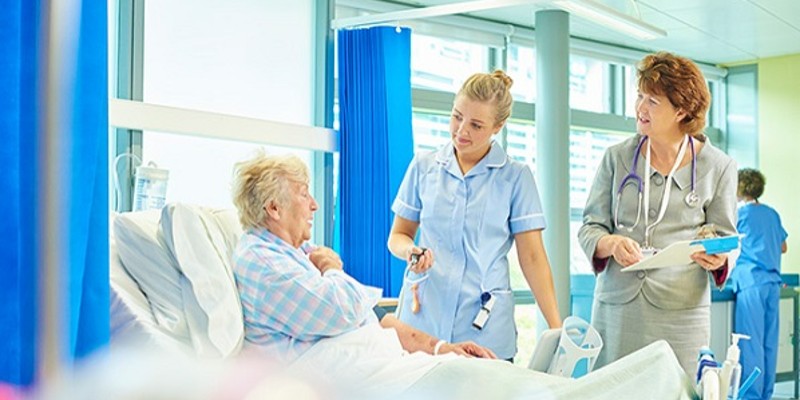
The RCN has launched its new definition of nursing to reflect the safety-critical role the nursing profession plays within health care. It has been twenty years since we last published a definition of nursing and since then, the nursing profession has changed enormously. The new definition reflects the changes and increased complexity of the profession and responsibility of registered nurses.
The definition is:
Nursing is a safety-critical profession founded on four pillars: clinical practice, education, research, and leadership.
Registered nurses use evidence-based knowledge, professional and clinical judgement to assess, plan, implement and evaluate high-quality person-centred nursing care.
The work of registered nurses consists of many specialised and complex interventions. Their vigilance is critical to the safety of people, the prevention of avoidable harm and the management of risks regardless of the location or situation.
Compassionate leadership is central to the provision and co-ordination of nursing care and informed by its values, integrity and professional knowledge. Responsibility includes leading the integration of emotional, physical, organisational, and cognitive nursing work to meet the needs of people, organisations, systems, and populations.
Registered nurses are decision makers. They use clinical judgement and problem-solving skills to manage and co-ordinate the complexity of health and social care systems to ensure people and their families are enabled to improve, maintain, or recover health by adapting, coping, and returning to live lives of the best quality or to experience a dignified death. They have high levels of autonomy within nursing and multi-professional teams, and they delegate to others in line with the NMC code.
The RCN Professional Nursing Committee has worked alongside members, fellows and forums to create this definition. It underpins the updated RCN Principles of Nursing, which describe what everyone can expect from nursing to deliver safe and effective care. They cover the aspects of behaviour, attitude and approach that support good care and they are mapped to and complement the NMC Code.
Rachel Hollis, Chair of the RCN Professional Nursing Committee, said: "This has been a hugely important piece of work by the RCN and will help ensure that registered nurses are valued and respected, and the scope of their work is acknowledged.
"The definition will sit alongside our revised principles of nursing, which are of relevance to the whole nursing workforce. It will underpin the RCN Professional Framework, which is designed to provide clarity on levels of practice and will establish a career framework for nurses, developed by nurses."
A digital resource is expected to launch at the end of the year, bringing together the definition, the principles and career framework.





